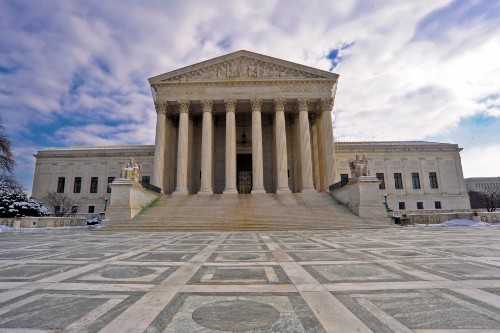In the bustling metropolis of New York, where the pace of life moves at lightning speed, encountering a traffic ticket can be an unexpected inconvenience. Whether it’s a speeding ticket, a red light violation, or any other traffic offense, finding yourself in traffic court can be a daunting experience. To help demystify the process, this guide will walk you through what to expect in New York Traffic Court, providing valuable insights into the requirements you’ll need to meet.
Understanding the Basics of New York Traffic Court
Traffic court in New York handles a myriad of traffic-related offenses, ranging from minor infractions to more serious violations. It’s essential to understand the basics of the court system to navigate the process effectively.
Before the Court Date
Upon receiving a traffic ticket, you’ll find important information on the ticket itself, including the court date and location. It’s crucial to note these details and begin preparations well in advance of the scheduled court appearance. Ignoring or delaying action may lead to additional penalties and consequences.
Types of Traffic Violations
New York classifies traffic violations into two main categories: moving violations and non-moving violations. Moving violations involve actions while the vehicle is in motion, such as speeding or running a red light. Non-moving violations, on the other hand, typically relate to issues like expired registrations or parking violations.
Meeting Requirements for Traffic Court
When preparing for your appearance in New York Traffic Court, meeting specific requirements is paramount to ensure a smooth process. Failing to adhere to these requirements may result in additional complications and penalties.
Documentary Evidence
One of the critical aspects of preparing for traffic court is gathering and organizing all relevant documentary evidence. This may include photographs, witness statements, or any documentation that can support your case. Having a well-documented case can significantly impact the court’s decision.
Understanding Traffic Laws
Familiarizing yourself with New York’s traffic laws is essential. Being aware of the specific statute or code associated with your violation can help you better comprehend the charges against you. This knowledge is valuable when presenting your case in court and may influence the judge’s decision.
Legal Representation
While not mandatory, hiring an experienced attorney to represent you in traffic court can be advantageous. Arthur L. Pressman, Attorney at Law, brings a wealth of knowledge and experience in navigating New York’s complex legal landscape. Having an attorney by your side can enhance your chances of a favorable outcome and provide guidance throughout the legal proceedings.
Timely Submission of Documents
Ensuring all necessary documents are submitted in a timely manner is crucial. Late submissions may not be considered, potentially impacting the strength of your case. Organize your paperwork well in advance and adhere to any deadlines set by the court.
The Court Appearance
On the day of your scheduled court appearance, it’s essential to be well-prepared and arrive early. Traffic court proceedings can move quickly, and being punctual demonstrates respect for the legal process.
Check-In and Formalities
Upon entering the courtroom, locate the check-in area and ensure you complete any required formalities promptly. Provide any necessary documentation to court personnel and be prepared to wait for your case to be called.
Presenting Your Case
When your case is called, approach the front of the courtroom and be respectful to the judge and other court officials. Clearly and concisely present your case, referring to any evidence you’ve gathered. If you have legal representation, allow your attorney to guide you through the process.
Decision and Penalties
After presenting your case, the judge will make a decision based on the evidence and arguments presented. If found guilty, penalties may include fines, points on your driving record, or, in severe cases, license suspension. Understanding the potential consequences is crucial in preparing for any outcome.
Appealing a Decision and Post-Court Considerations
If the court’s decision is not in your favor, you may have the option to appeal the ruling. Understanding the appeal process is crucial, and consulting with legal professionals like Arthur L. Pressman can provide valuable insights into whether pursuing an appeal is a viable option for your case.
Post-Court Requirements
Regardless of the court’s decision, there are often post-court requirements you must fulfill. These may include paying fines, attending defensive driving courses, or completing community service. Failing to meet these obligations can result in further legal consequences, including additional fines or even the suspension of your driving privileges.
Monitoring Your Driving Record
Traffic violations can have a lasting impact on your driving record. It’s essential to regularly check your record to ensure accuracy and address any discrepancies promptly. Keeping a clean driving record is not only important for your current situation but also for maintaining low insurance premiums and avoiding future legal complications.
Educational Programs and Defensive Driving Courses
In some cases, the court may offer the option to attend defensive driving courses or educational programs to mitigate the impact of the violation. These courses not only serve as a valuable learning experience but can also contribute to a more favorable outcome in court. Consult with your attorney to determine whether participating in such programs is advisable for your specific situation.
Navigating New York Traffic Court can be a challenging endeavor, and having a seasoned attorney by your side can make a significant difference. Arthur L. Pressman, Attorney at Law, is committed to providing experienced legal assistance in traffic matters. Contact us today for a consultation to ensure you are well-prepared and have the support you need for your upcoming traffic court appearance. Don’t face the legal system alone—let us guide you through the process and work towards a favorable resolution.
